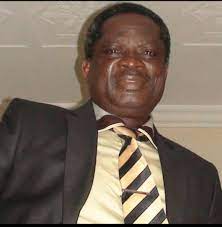Cyriacus Nnaji
The Chartered Institute of Transport Administration of Nigeria (CIOTA) has provided way out of the current disagreement between the Federal Government of Nigeria and the Labour Unions resulting from the removal of fuel subsidy.
The group made their position known in a Virtual National Roundtable Discussion which has the topic: ‘Fuel Subsidy Removal Conundrum: National Consensus on Removal, But Cacophony on How to Achieve It’ which was held on Sunday, June 4, 2023.
Professor Odewumi Samuel, School of Transport and Logistics, Lagos State University (LASU) who is also Chairman CIOTA, Road Sector Committee was the Lead Discussant. He urged the government to ensure it earned the trust of Labour unions and not meting out the same treatment it gave to the Academic Staff Union of Universities (ASUU).
He spoke essentially on way out of “Subsidy is Gone”, negotiation and negotiation matrix with Labour and what must be avoided in the negotiations. He said “Government must earn labour trust by implementing whatever is agreed (No ASUU treatment).”
Prof. Odewumi also spoke on what he called Strike and Protest Threats: Way Forward, saying “The strike threat is real and looming for Wednesday; how do we avert it and still achieve the national consensus of subsidy removal? My first plea with labour and government is to enter the negotiation room today with the suffering of Nigerian masses at the back of their minds”
On way out of the quagmire he said there should be a constitution of Negotiation Team with discernable attributes, people with Credibility, Knowledgeable about the industry, Mastery at handling labour, Conflict resolution experts, Transportation Professionals like CIOTA; Professional Media Handlers, among other attributes.
On Negotiation matrix with labour, he said “There must be something on the table for Labour for them to drop demand for return to status quo ante on price which will no doubt prolong the peoples’ agonies and uncertainties. But the sword is already out of the scabbard. It cannot certainly go back in vain.”
He advocated immediate Hardship Allowance for workers from the accruable saving is here suggested or immediate One month extra pay bonus, Leave bonus, etc. based on collective bargaining; Review of the minimum wage; definite agreement on the Resuscitation; Privatisation/Commercialisation/Selling, Outsourcing the Management of Ph/Warri/Kaduna Refinery; Adoption of NLNG Model of Management for the refineries (Core Investor 51%; Federal 20%; States 10%; LG 5%; Public 5%; the Workers/NLC/TUC 5%; and Community 4%.
Professor Odewumi advised that the negotiation team must embark on continuous talk until agreement is reached, adding that any protest could be hijacked to become ENDSARS with the huge cost to the nation. “They should not even be allowed to go outside for break, let food be brought to them there or let them fast in there; they should consult their leadership/council right there; Negotiations MUST not be allowed to breakdown; There will never be a good time to remove the subsidy; We must resolved to sort it out once and for all.”
On what must be avoided in the negotiations in order to achieve a credible result, he said government must Free non-transparent “hands out” to the so-called poor, usually just a gift to the political supporters/thugs; Cash transfer/market money with opaque selection criteria. He said government should also avoid hurried disbursement of the $800m World Bank loan; fixing any other price level rather than full deregulation, threatening language from the side of government and any form of harassment or intimidation of union leaders.
He also spoke on what he called Back-up position for government and labour in case negotiation fails “Government to accept reversal to old price till the end of June; Labour to present its table of demands; Government to identify and implement those that it can implement immediately like hardship allowance for workers, Negotiation to continue unbroken with a standing team on both sides; this should be considered in the interest of the nation and our seriously sick dear fatherland.”
On Negotiation matrix with marketers, the university Don suggested full deregulation, no price fixing; waivers of importation taxes and levies for private importers; provision of Forex for importation of fuel; Credit support; security; fuel distribution infrastructural upgrade: roads, pipelines, continuous engagement to ventilate their challenges both financial and logistics and working together to develop templates to deal with them, adding that they should be assisted to invest more in their depots, distribution fleets and dispensing infrastructure; Protect them from the extortion of law enforcement agencies, illegal local governments tax and levy collectors and Agberos.
On negotiation Matrix with Dangote, the don urged government to establish delivery capacity, schedule and price. “If the roll out price is between N250-N350 /litre, which is not far from what most Nigerians pay currently, and the volume will satisfy local demand, the government should work out seamless distribution to keep every part of the country wet with adequate supply.
“However, if the price will be more than N350/litre the government should consider selling crude to Dangote at a calculated subsidy that will ensure he delivers to Nigerians below N350/litre benchmark. This will amount to transferring subsidy to production not consumption. This arrangement should be in place in the short run for a minimum of six months to allow the in-coming government and the refinery to stabilise.
Prof. Odewumi advocated the engagement with the media and Nigerians “To gain the buy-in of Nigerians, the media must be converted. As agenda setters, no matter how laudable any policy is, if the press continuously railed against it, the policy will fail; Engagement should involve all the layers: Proprietors, MDs, GMs, Editors and especially Reporters and major presenters and Talk shows Hosts: So that they will be informed and not propagating beer parlour ideas.
He spoke on what he called Post-subsidy removal focus areas which are the areas government should direct the Savings from the subsidy: Education: ASUU demands, Students loans, Infrastructure; Health: Doctors Demands, Hospital upgrade; Power/Energy: Gas, Coal, Multimodal Transportation Infrastructure; ICT Support; Agricultural Hubs support and price guaranty.
In conclusion he said “Nigeria must get this subsidy monkey; that is sucking dry our revenue, off our back. We cannot continue with this costly racket, we now have our back to the wall, our options are very few, our debts are crippling, borrowing sources are drying up; the future of our children is already mortgaged, we cannot continue with our prodigal ways. It is time to remove the subsidy kneel from our neck; we have procrastinated for too long, we have subsidised our neighbours through smuggling long enough; and it is time to remove it with appropriate tactics and strategies.
“There will never be a perfect time and painless ways to remove the subsidy; since there seems to be accord on removal but discord is on how to do it; with unity of purpose, goodwill and thinking outside the box from all sides; with our creativity and ingenuity; it is Doable.”
Other discussants at the Roundtable include, Prof. Innocent Ogwude, Chairman, CIOTA-Cotrians, and DVC Nigeria Maritime University, Okerenkoko; Comrade Peter Esele, Indudtry expert and former President, Trade Union Congress; Dr Kayode Opeifa, Executive Secretary, Mobility and Access Development and former Commissioner for Transport, Lagos State; Hon Umar (Sanda) Iya, Deputy –President, CIOTA; Dr. Mrs Mercy Ilori, Director, Transport Planning and Coordinator, FMT, Abuja; Mall Hassan Abubakar, Senior Staff Development Officer, NITT, Zaria and Mazi Phillips Okorokwo, National Secretary, CIOTA who was the moderator, while, Prince Segun Obayendo, President/Chairman of Council was the host.



